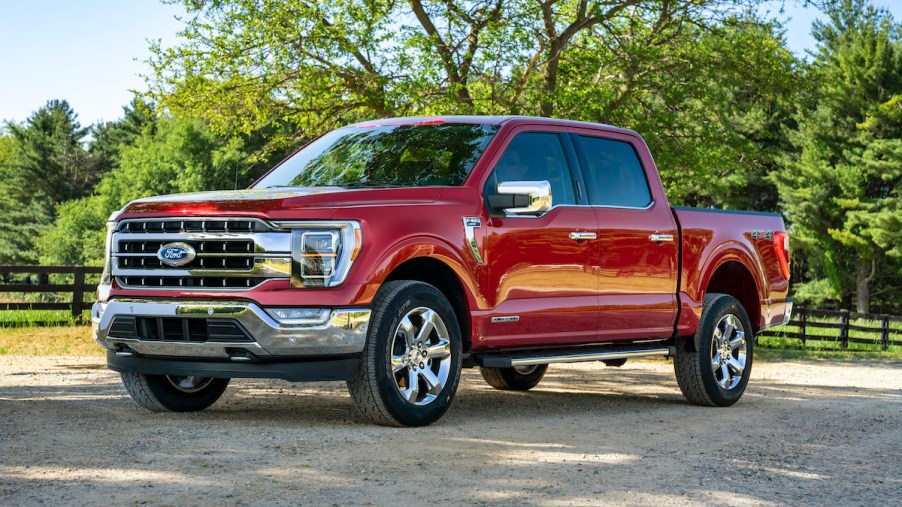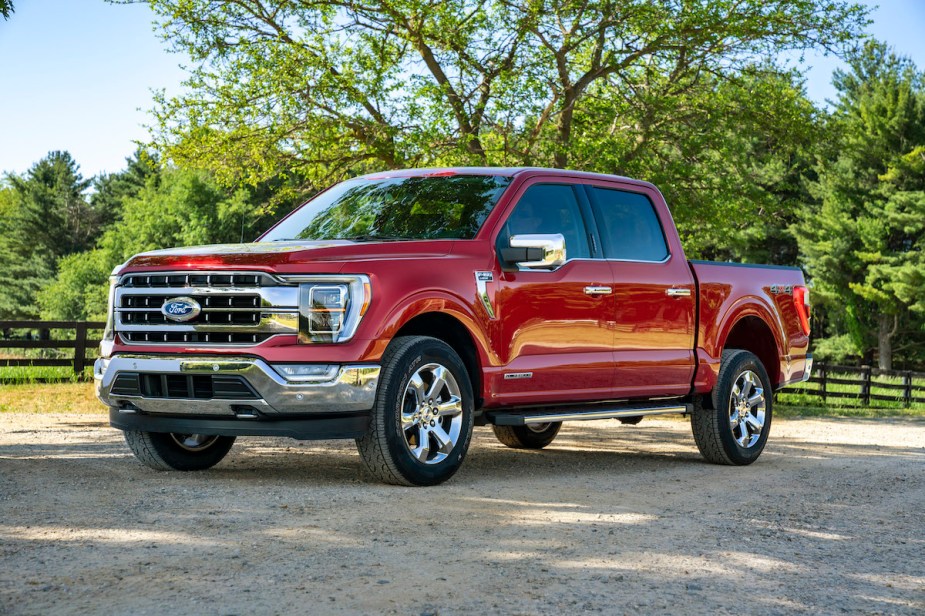
Ford F-150 Insurance Costs: Everything You Need to Know if You Have Bad Credit
Insuring a vehicle can get expensive for some people, especially those who want to insure a new truck. However, your rates are determined by several factors, including your credit rating. If you want to buy a Ford F-150, your insurance rates could decide whether or not you proceed with the purchase. Let’s look at how insurance rates are calculated and how factors like credit score affect your F-150.
Factors that determine car insurance premiums

Car insurance premiums are calculated with several different factors. First, there’s the age and gender of the driver. The younger the person is, the more they’re considered a risk for an accident. Of course, you can be an older person and still have high premiums because these companies also consider your driving history. Too many accidents on your report, and you’re also considered a risk.
Another factor is your credit score. Most states will allow insurance companies to consider that when calculating your insurance costs. The better your score, the less you’re likely to pay on your premiums. Those with poor credit ratings will ultimately pay more. However, some states, like California, Hawaii, and Massachusetts, don’t allow companies to use those scores when determining your insurance costs.
The type of vehicle you drive is another factor. A minivan with plenty of safety features will receive discounts on your premiums, while a sports car with less safety equipment will cost you more. The number of miles you drive in a year and theft statistics taken from your area. All of these will contribute to the price of your insurance policy.
Breakdown of Ford F-150 insurance costs when you have bad credit
According to CarEdge, for a Ford F-150, insurance costs would run you around $3,024 if you’re older and have a good driving record but poor credit. That’s almost double the $1,760 price tag for those with good credit ratings. If your credit is good, but you have a recent accident on your record, your premium could cost you $2,585.
If you’re an 18-year-old with poor credit, you’re better off not having an F-150 because CarEdge reports that you’d pay approximately $9,546 a year. If you’re lucky enough to have good credit at that age but have an at-fault accident on your record, you’d end up paying $8,160. That makes owning this pickup too expensive.
You’re in a much better position if you’re 30 years old and up. If you’re 30 and have poor credit, you’ll likely pay $3,357, which is much better than the nearly $10,000 premium of the 18-year-old.
Many factors determine your car insurance premiums, including age, gender, type of car, and credit score, to name a few. If you’ve only been driving for a couple of years, you’re better off leaving the F-150 pickup to those who can afford the insurance and sticking with vehicles loaded with safety equipment.
Average insurance costs
If you’re a 40-year-old driver with a good driving record and credit, you could pay approximately $1,835 yearly in premiums for a brand-new vehicle. However, if you have poor credit but still have a good driving record, you could pay as much as $3,151, according to CarEdge. Most insurance companies use your credit score to determine how much of a risk you are.
A younger driver that’s 18 years old is not likely to have a good credit rating, at least not yet. So, one with a good driving record at this age could pay around $9,948 for a Ford vehicle simply because of their age and credit score. This is usually why experts recommend that those this young get onto their parent’s policies, so the premiums are a little more affordable, at least until they reach about 25 years old.
When it comes to where you live, Louisiana is one of the most expensive states in the country for insurance. For good credit, you could pay $3,102, while a driver with poor credit could pay $5,085. Hawaii is one of the cheapest states when it comes to insurance. Average insurance premiums could run you $849 with a good driving record and $1,153 if you have an accident on your report.


